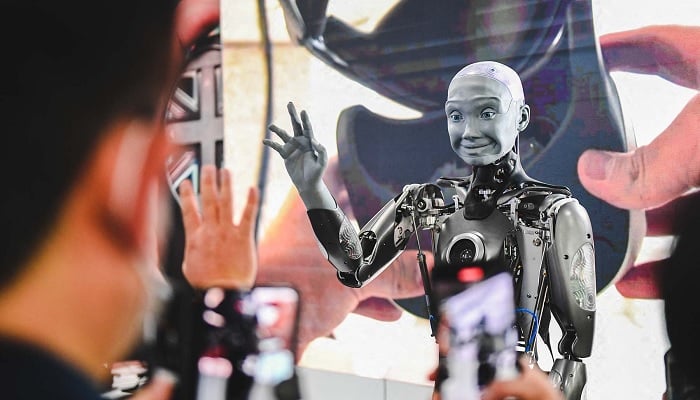Amid rising risks, world powers join hands for global AI 'code of conduct'
Regulators on both sides expect to draft a voluntary code of conduct on artificial intelligence "within weeks" with the hope that fellow democracies will sign on
With the warnings against the risks of unregulated artificial intelligence (AI) growing louder and louder, the risk-averse world powers have decided to take action before this technology turns into a loose cannon and annihilates humanity.
World's technology leaders including ChatGPT-developer OpenAI's Sam Altman and Google's former artificial intelligence (AI) pioneer Geoffrey Everest Hinton — also known as the godfather of AI — have strongly raised alarms that without proper regulation this technology can lead to serious threats.
After talks with EU officials in Sweden, US Secretary of State Antony Blinken said that the Western partners felt the "fierce urgency" to act following the emergence of the technology, in which China has been a growing force.
The voluntary code "would be open to all like-minded countries," Blinken told reporters.
"There's almost always a gap when new technologies emerge," Blinken said, with "the time it takes for governments and institutions to figure out how to legislate or regulate."
European Commission Vice President Margrethe Vestager added that a draft would be put forward "within weeks."
"We think it's really important that citizens can see that democracies can deliver," she said.
She voiced hope "to do that in the broadest possible circle -- with our friends in Canada, in the UK, in Japan, in India, bringing as many onboard as possible."
Sam Altman, whose firm OpenAI created the popular AI-driven ChatGPT bot, took part in the talks of the Trade and Technology Council between the EU and the United States, this year hosted in the northern Swedish city of Lulea.
The forum was set up in 2021 to ease trade friction after the turbulent presidency of Donald Trump but has since set its sights largely on artificial intelligence.
In a joint statement, the two sides called AI a "transformative technology with great promise for our people, offering opportunities to increase prosperity and equity."
"But in order to seize the opportunities it presents, we must mitigate its risks," it said.
"The European Union and the United States reaffirm their commitment to a risk-based approach to AI to advance trustworthy and responsible AI technologies."
It said that experts from the two sides would work on "cooperation on AI standards and tools for trustworthy AI and risk management."
The EU has been moving forward on the world's first regulations on AI which would ban biometric surveillance and ensure human control, although the rules would not enter into force before 2025 at the earliest.
China has also discussed regulations but Western powers fear that Beijing, with its growing prowess in the field and willingness to export to fellow authoritarian countries, could set global standards without Western unity.
-
Shanghai Fusion ‘Artificial Sun’ achieves groundbreaking results with plasma control record
-
Polar vortex ‘exceptional’ disruption: Rare shift signals extreme February winter
-
Netherlands repatriates 3500-year-old Egyptian sculpture looted during Arab Spring
-
Archaeologists recreate 3,500-year-old Egyptian perfumes for modern museums
-
Smartphones in orbit? NASA’s Crew-12 and Artemis II missions to use latest mobile tech
-
Rare deep-sea discovery: ‘School bus-size’ phantom jellyfish spotted in Argentina
-
NASA eyes March moon mission launch following test run setbacks
-
February offers 8 must-see sky events including rare eclipse and planet parade












